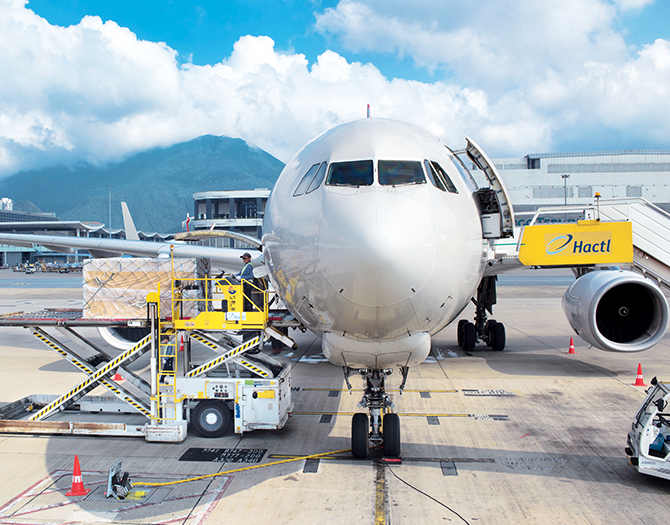
- Hong Kong International Airport (HKIA) handled 391,000 tons of cargo in January, down 4.7% from January 2021 despite freighter movements rising 14.1% to 7,165 from 6,278
- Passenger traffic eased 0.1% year on year to 71,000, still significantly below pre-pandemic level in January 2019, the Airport Authority of Hong Kong reported
- AAHK blames the cargo and passenger throughput drops to reduced flights as the Omicron variant triggered a worldwide resurgence of COVID-19
- Transhipments were affected most significantly by double digits year on year, although exports grew 4.2% compared with January 2021
- Overall cargo to and from North America took the most significantly hit
Hong Kong International Airport handled 391,000 tons of cargo in January, down 4.7% year on year, despite freighter movements rising 14.1% to 7,165 from the 6,278 in January 2021the Airport Authority said.
Passenger traffic eased 0.1% year on year to 71,000, remaining significantly lower than the pre-pandemic level in January 2019, said the airport operator said in a press release.
The decrease in both cargo and passenger throughputs were due to flight reductions as the Omicron variant triggered a worldwide resurgence of the coronavirus contagion, AAHK said.
Tightened entry restrictions led to a decline in transfer/ transit passengers in January 2022 compared with the same month last year, while departure passengers to Southeast Asia and arrival passengers from China experienced the most significant increases during the month.
AAHK said transhipments were affected most significantly, contracting by double digits year on year, although exports grew 4.2% compared with January 2021.
Taking the most significant hit during the month was overall cargo to and from North America.
On a 12-month rolling basis, passenger volume shrank 57.6% to 1.4 million, while cargo throughput rose 10.8% to 5 million and flight movements increased 4.8% to 145,450.
Hong Kong is reeling from the impact of the Omicron-driven fifth wave, that scuttled the city’s zero infection policy and overwhelmed its health system. Health officials reported 6,063 new cases and around 7,400 preliminary positive cases on February 19. They said 15 more people died.
Meanwhile, AAHK won the “Hong Kong Sustainability Award 2020/21” presented by the Hong Kong Management Association.
The award aims to raise awareness of the importance of sustainability in the business community and recognize best practices.
AAHK achieved distinctive results across key sustainability aspects such as management commitment and stakeholder engagement, environmental management measures and implementation, response to COVID-19, and corporate governance.
“We are honored to receive the award, which demonstrates our continuous efforts to drive sustainable growth at HKIA,” said Peter Lee, general manager for sustainability at AAHK.
“We spare no effort to ensure that our airport operations and expansion works are performed at a level beyond environmental compliance. This is a collaborative achievement, as we could not do it without the support of the wider airport community. We will continue to work with our stakeholders to realise our goal of becoming one of the greenest airports in the world,” Lee said.




